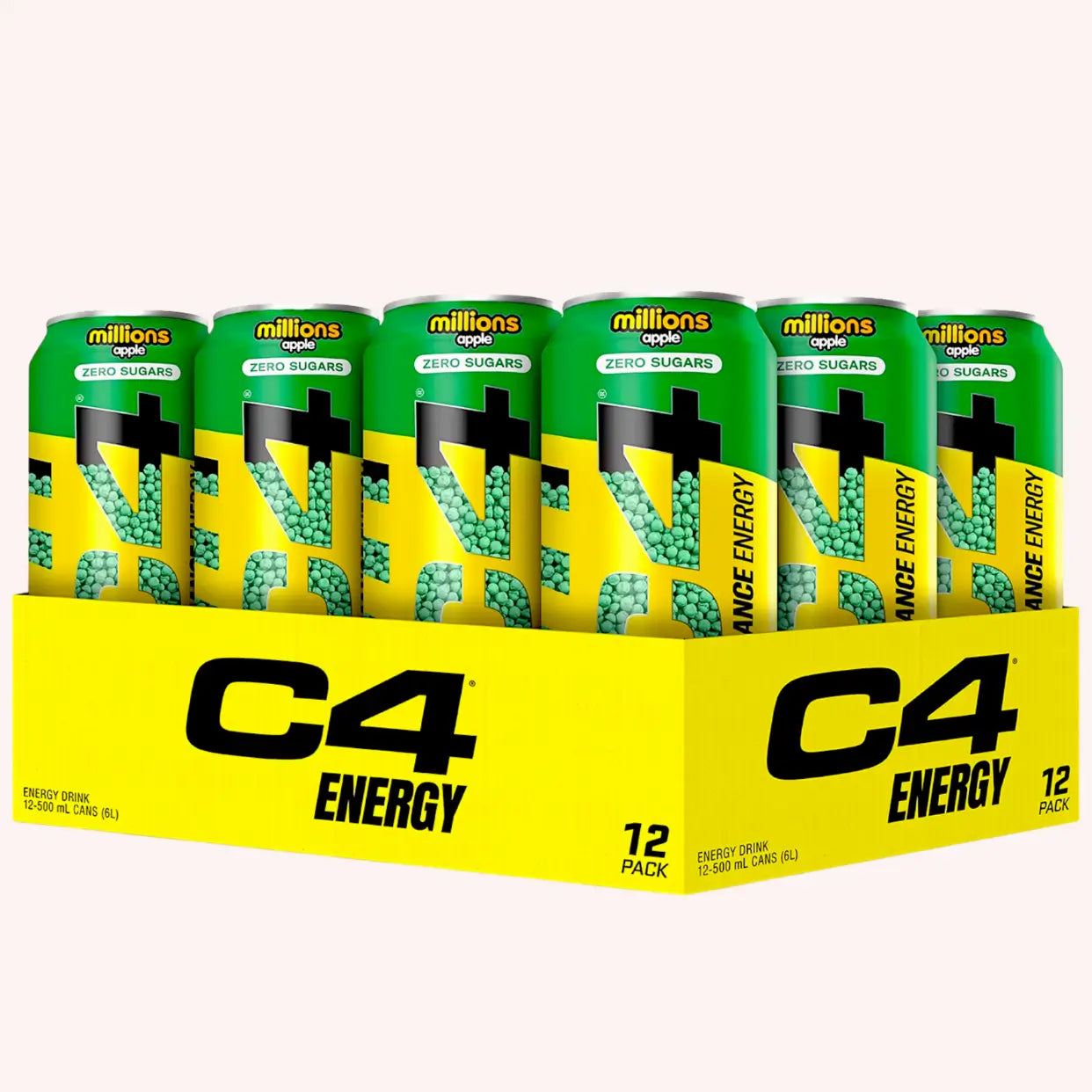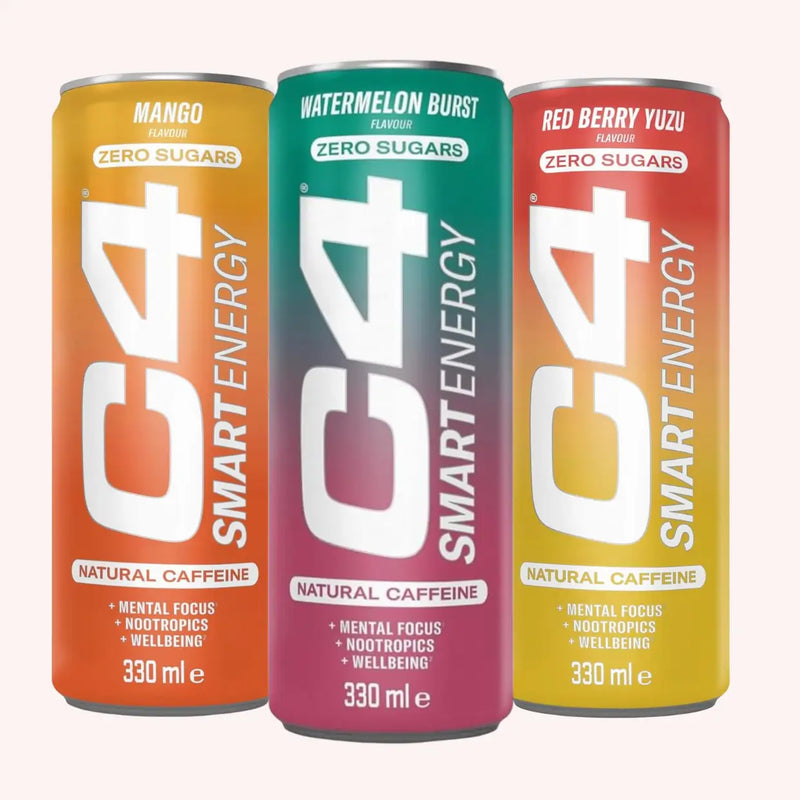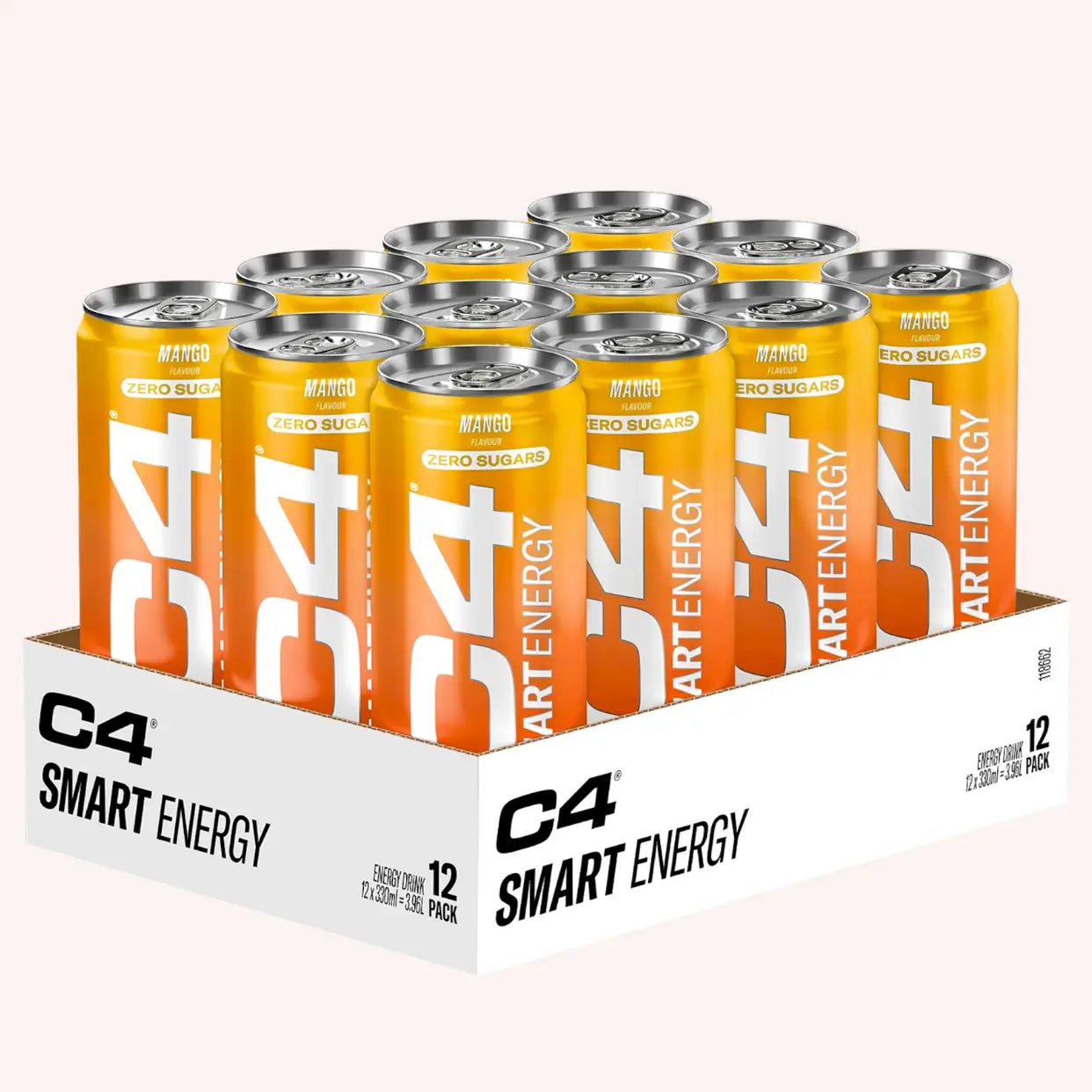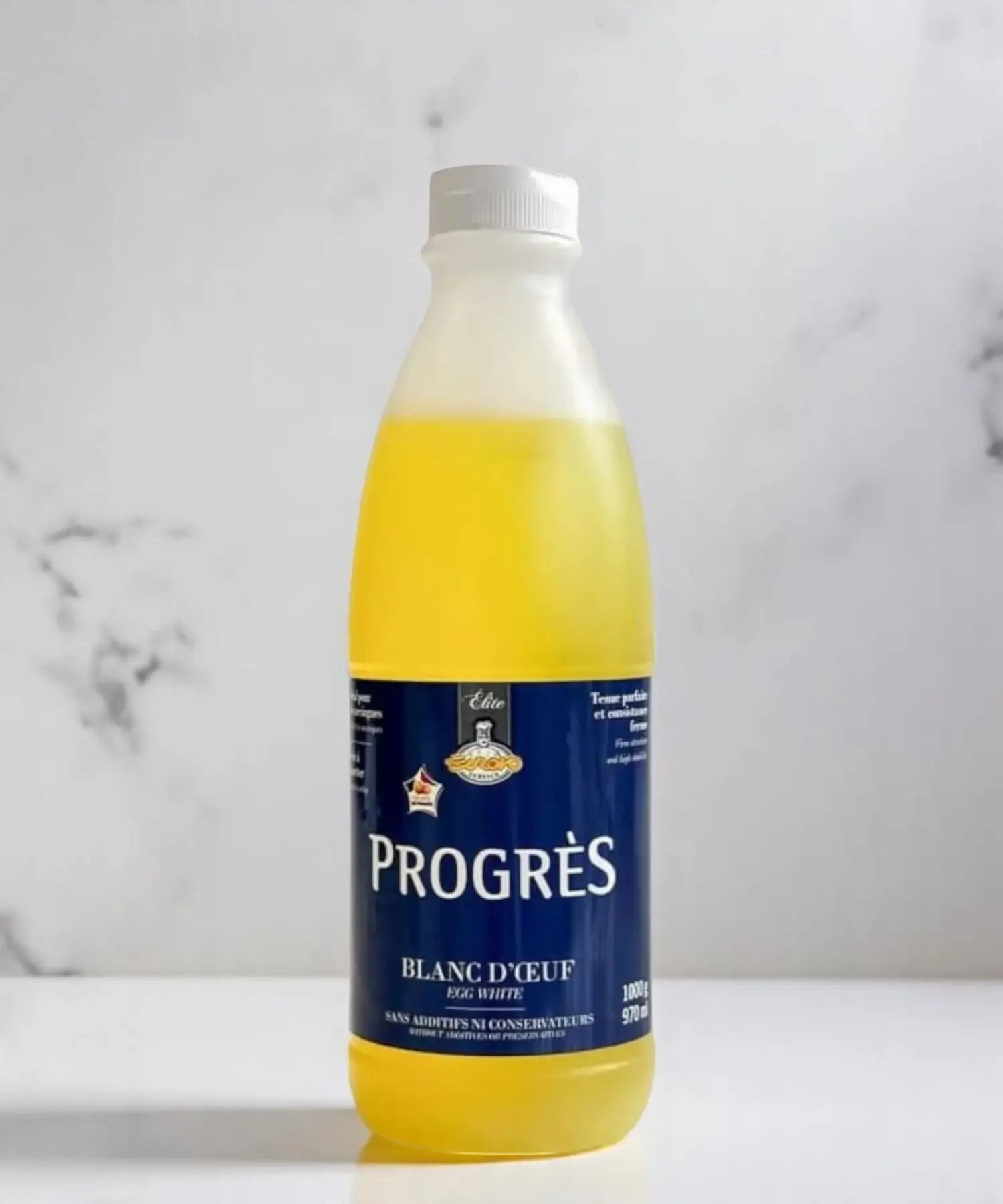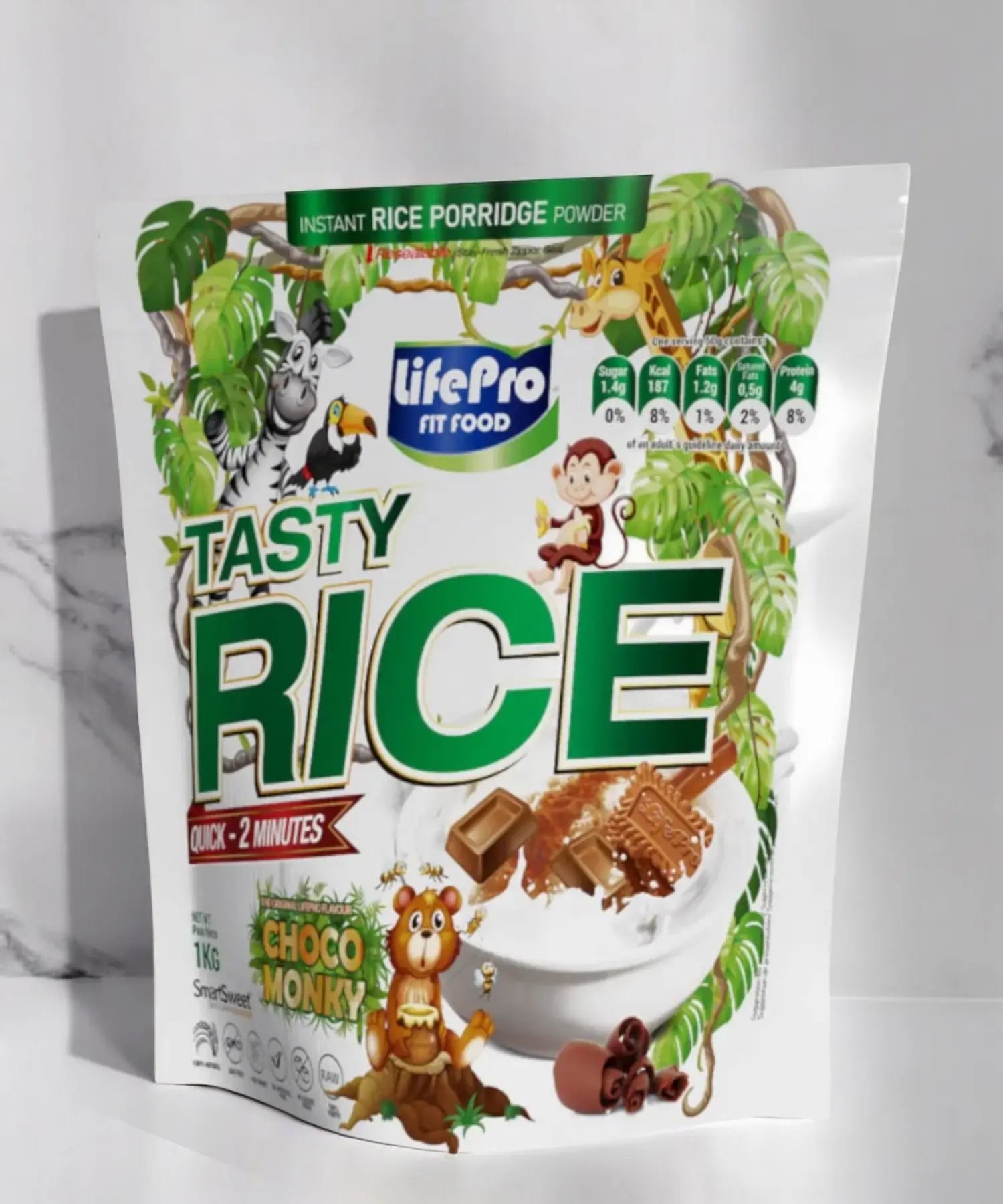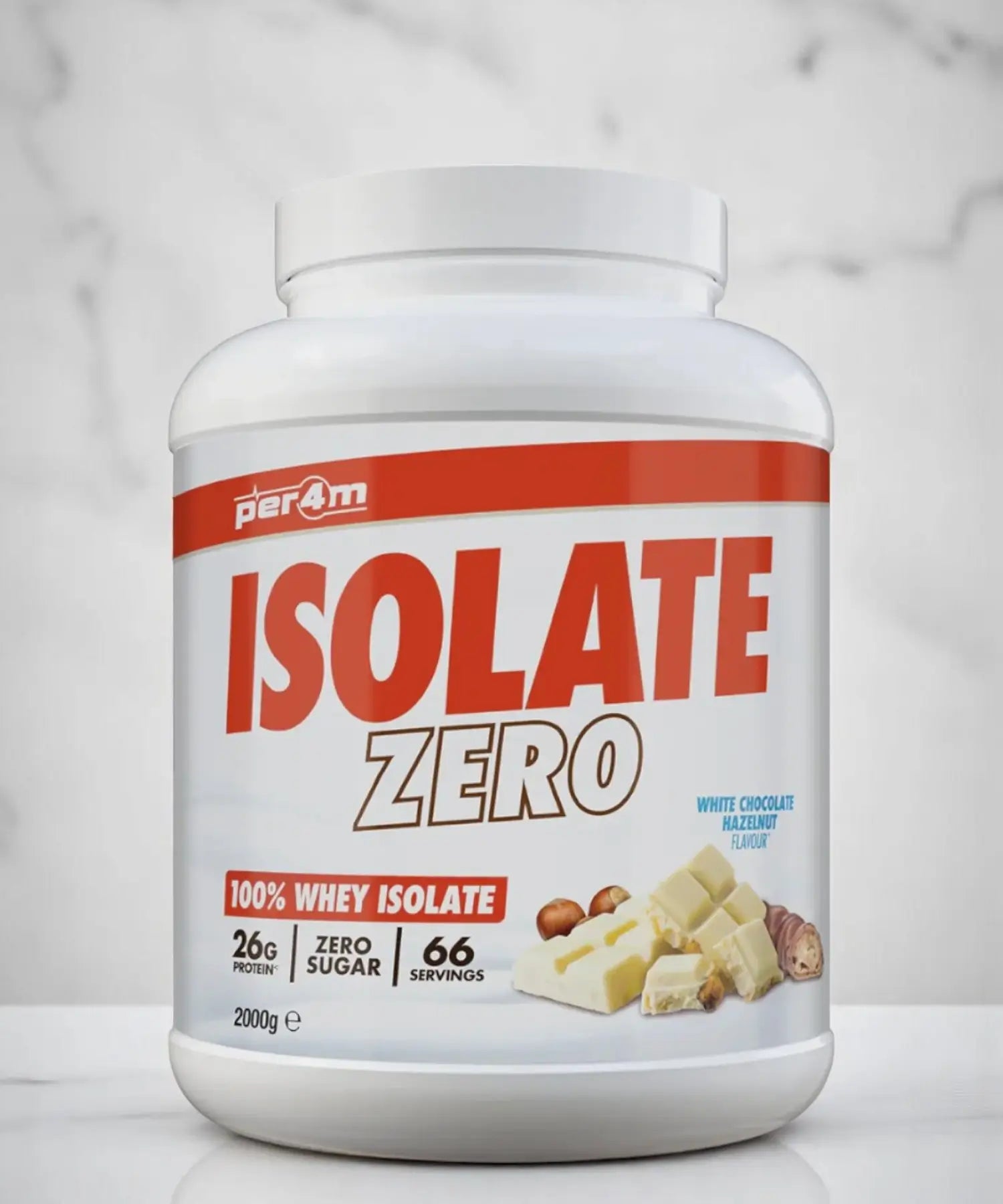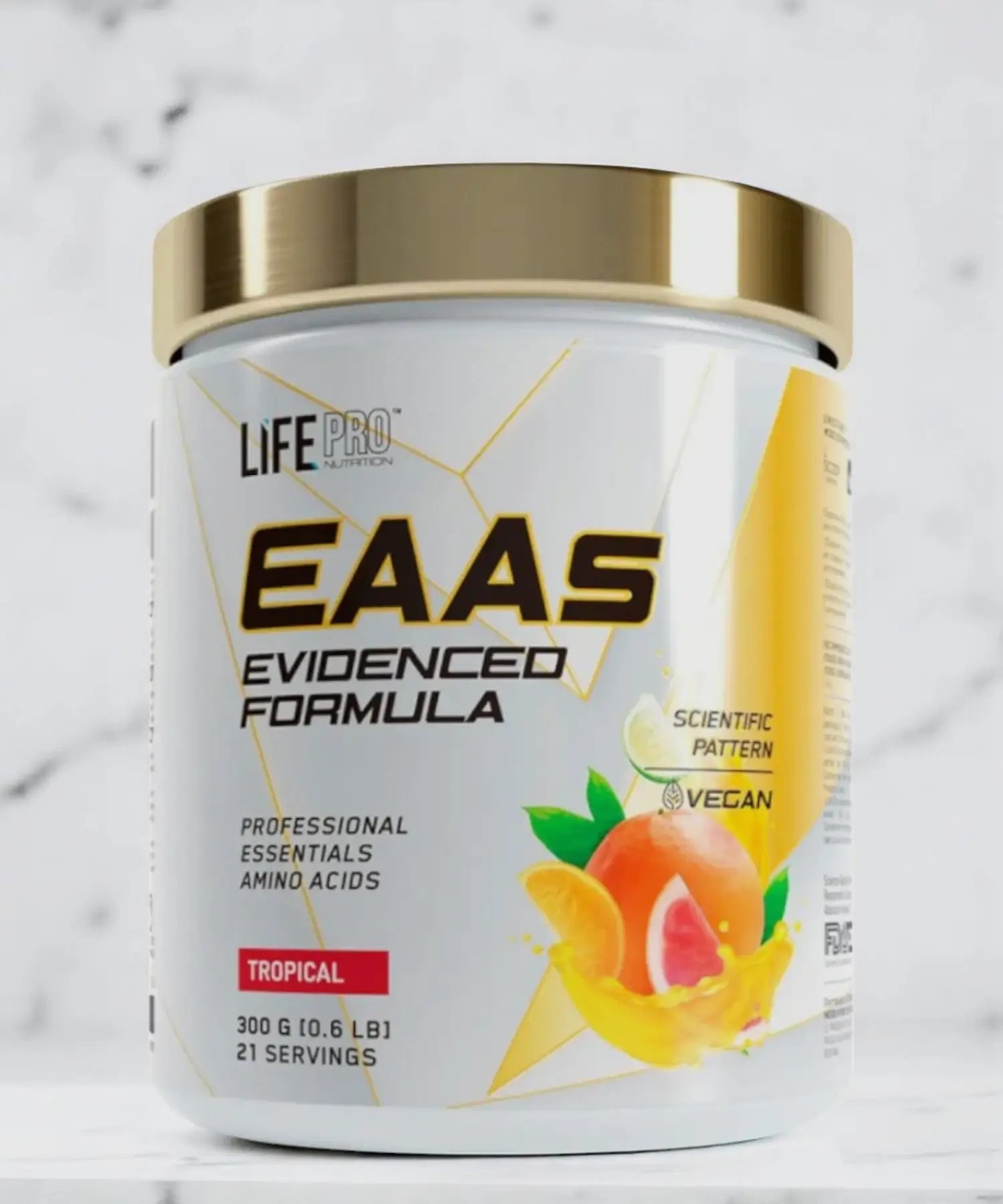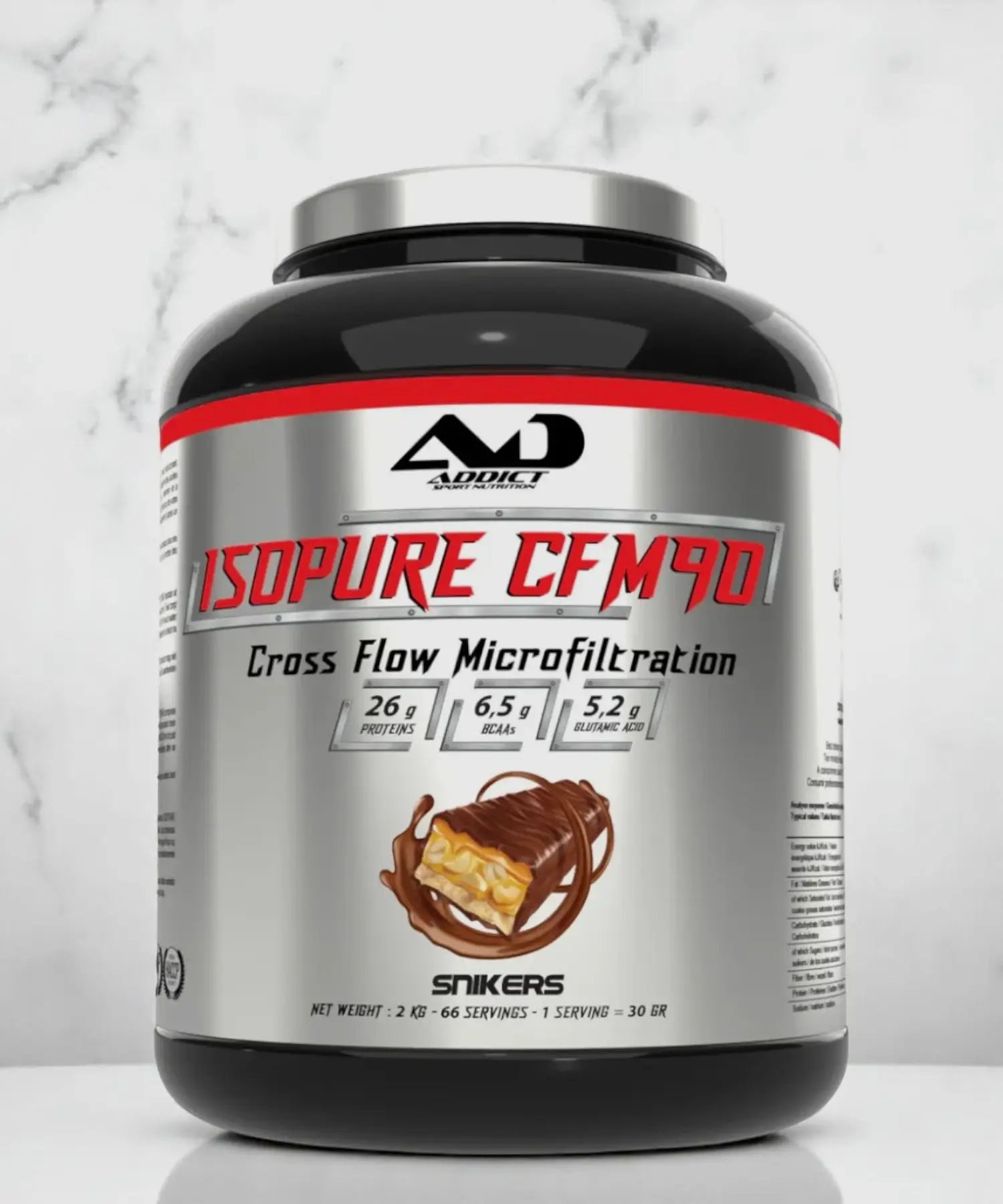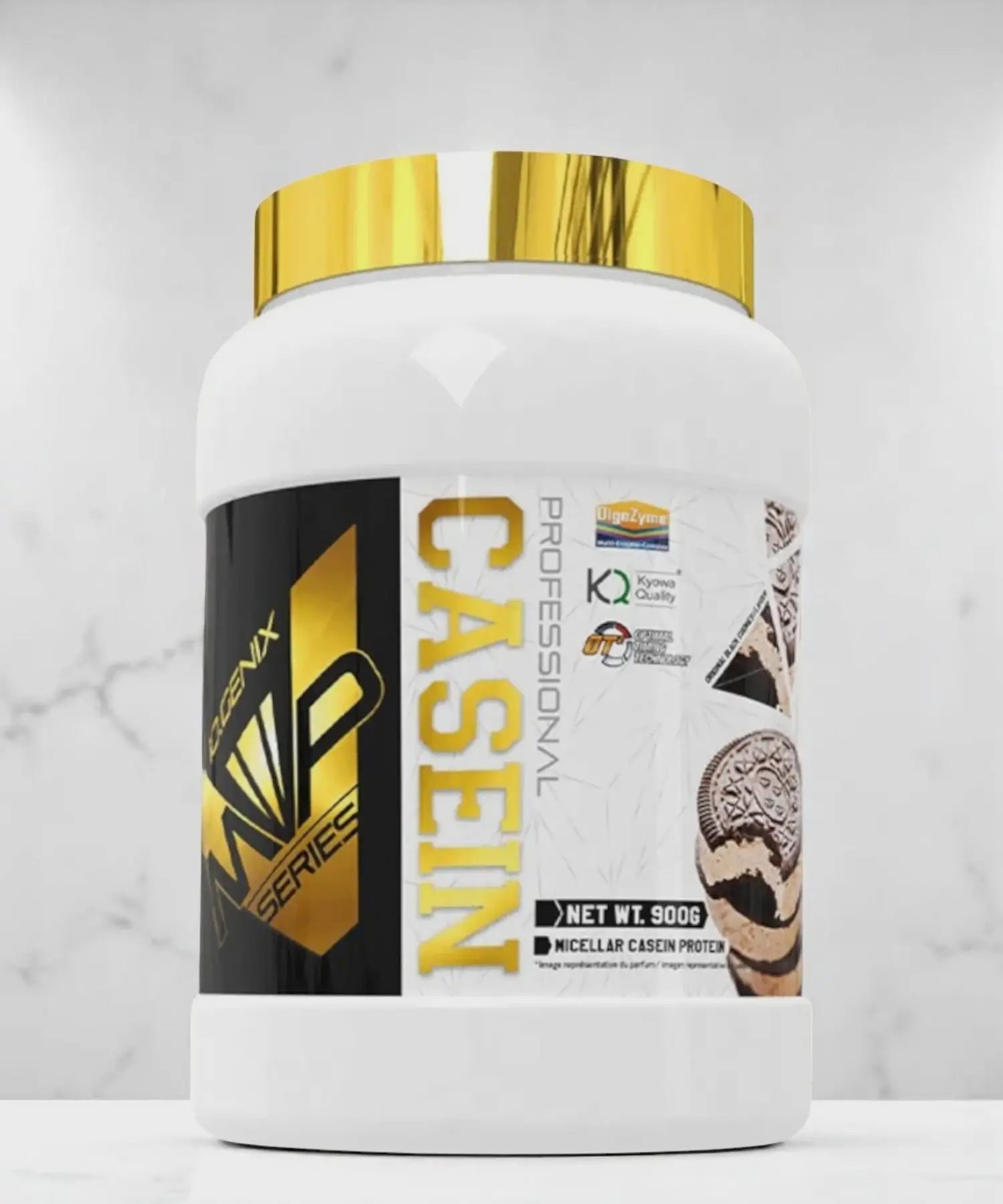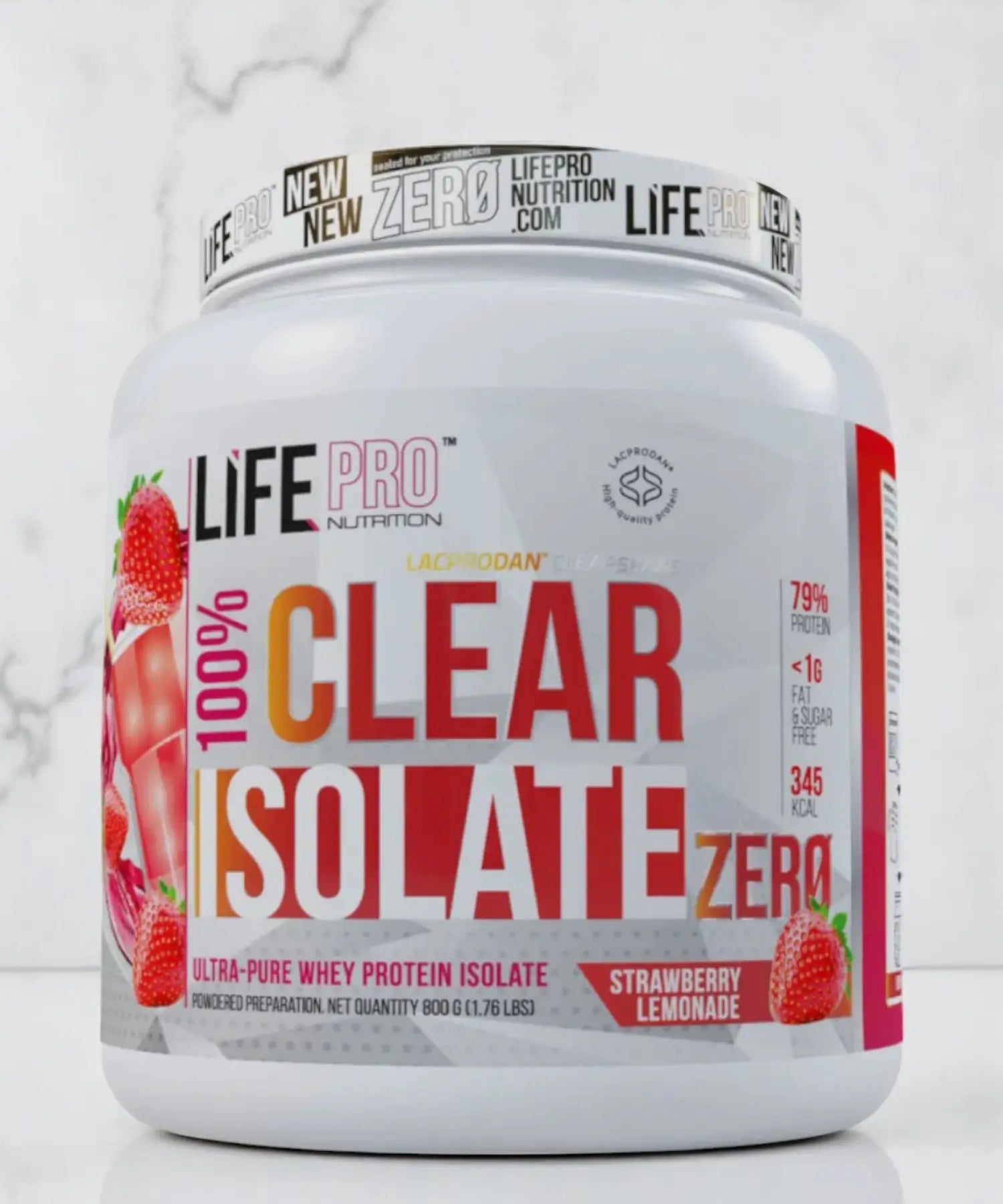2 products
Sports energy drinks have gained widespread popularity among athletes, bodybuilding enthusiasts, and even those looking for a boost for their intense days. While they can provide significant support for physical and mental efforts, it's crucial to understand their composition, effectiveness, and potential risks before incorporating them into your routine.
In this article, we'll explore everything you need to know about energy drinks , from their ingredients to how to choose the one that best suits your needs.
What is a sports energy drink?
Sports energy drinks are specially designed to improve energy, focus, and endurance during physical activity. Unlike traditional sugary drinks, they contain active ingredients that stimulate the nervous system and increase performance, particularly thanks to caffeine. These drinks are particularly popular in canned form.
Typically, they are made with caffeine , amino acids , natural sweeteners and flavors, and other beneficial ingredients.
The growing popularity of these drinks is due to their effectiveness and ease of use. Athletes are constantly looking to optimize their performance, and energy drinks are a quick and convenient solution to this need.
Key ingredients in sports energy drinks
Not all energy drinks are created equal. Formulas vary by brand and product, but several ingredients are extremely common and present in almost all sports energy drinks. Let's take a closer look at these ingredients and their roles.
Caffeine: An ingredient with multiple benefits
Caffeine is arguably the most well-known ingredient in energy drinks. It acts as a central nervous system stimulant, potentially delaying the onset of fatigue and increasing alertness, allowing athletes to train longer. It is also known to enhance physical performance, allowing for increased training intensity.
A study by Bryan Saunders et al. (1) on the impact of caffeine on athletic performance shows that moderate doses of caffeine can have beneficial effects on athletes' physical performance. However, it is essential to dose caffeine carefully, as excessive consumption can lead to side effects such as anxiety, sleep disturbances, or palpitations.
Natural Sweeteners and Flavors: Fewer Calories, More Flavor
Sweeteners such as sucralose or steviol glycosides (stevia extracts) are used in some energy drinks to reduce calorie content while maintaining a pleasant taste. These sugar alternatives are commonly used in low-calorie drinks, which are popular among diet-conscious athletes.
Natural flavors are also added to provide a pleasant taste without resorting to artificial colors . This allows for healthier, less artificial products, which is essential for consumers aware of the potential risks associated with chemical additives.
How to choose the right energy drink for sports?
There are a wide variety of sports energy drinks on the market, and choosing the right one can be challenging. Here are some criteria to consider when choosing the drink best suited to your needs:
- Performance Goals: The first question to ask yourself is: What is your fitness goal? If you're looking to improve your endurance, a caffeinated drink might be ideal.
- Ingredients to consider: When choosing an energy drink, opt for products containing natural ingredients and avoid those with artificial colors and added sugars. Natural flavors , quality sweeteners , and effective ingredients like caffeine and taurine are all good choices.
- Calorie and sugar content: If you're concerned about your calorie intake, choose drinks that are low in calories and have no added sugar. Some energy drinks offer sugar-free versions with natural sweeteners .
- Health Recommendations: Before you start consuming energy drinks , it is always wise to consult a healthcare professional, especially if you have any pre-existing conditions, such as heart problems or caffeine sensitivity.
When to take an energy drink?
It's important to choose the right time to consume an energy drink to maximize its effects while avoiding the drawbacks. Here are some tips for optimal consumption:
Before or during physical exertion
Energy drinks are particularly effective when consumed before or during a workout. They can help maintain your energy and improve your endurance by providing a quick boost of caffeine and other nutrients. By consuming an energy drink about 30 minutes before your session, you can take advantage of the stimulating effect of caffeine to boost your performance.
Avoid the evening
It's best not to consume energy drinks too late in the day, especially in the evening. The caffeine in these drinks can disrupt your sleep because it acts as a stimulant. Drinking an energy drink late in the day can make it difficult to fall asleep and affect the quality of your sleep. Therefore, it's recommended to limit your consumption after 4 p.m., especially if you're sensitive to caffeine.
Multiple flavors: A choice for all tastes
Sports energy drinks come in a variety of flavors to suit every palate. Here are some popular options:
- Orange: A fresh and tangy taste, ideal for an invigorating effect.
- Apple: A sweet, fruity flavor that appeals to a wide audience.
- Strawberry: Sweet and pleasant, it will delight those who prefer milder tastes.
- Mango: An exotic touch for a tropical taste experience.
- Watermelon: Refreshing and light, perfect for quenching thirst during exercise.
- Red Berry: A rich, fruity flavor, full of sweetness.
This diversity of tastes allows you to vary the pleasures and make the consumption of energy drinks more enjoyable, whatever your favorite taste.
Risks and precautions to take with sports energy drinks
Although they offer notable benefits, sports energy drinks are not without risks. Excessive consumption of caffeine or taurine can lead to side effects such as sleep disturbances and even palpitations. Furthermore, excessive use of these drinks can have adverse effects on tooth enamel due to their acidity.
It is therefore essential to use them in moderation.
Conclusion :
Sports energy drinks can be a great ally to improve your performance, especially if chosen according to your specific needs. However, it is important to understand their ingredients, their effects and to consume them with caution. The key lies in moderation , selecting quality ingredients and adapting the drink to your type of physical effort .
Sources:
- Bryan Saunders, Larissa Registro da Costa, Ricardo Augusto Silva de Souza, Gabriel Barreto, Felipe Miguel Marticorena, "Caffeine and sport" , ScienceDirect, 2023. DOI: https://www.sciencedirect.com/science/article/abs/pii/S1043452623000177?via%3Dihub
- Andrew R. Jagim, Patrick S. Harty, Grant M. Tinsley, Chad M. Kerksick, Adam M. Gonzalez, Richard B. Kreider, Shawn M. Arent, Ralf Jager, Abbie E. Smith-Ryan, Jeffrey R. Stout, Bill I. Campbell, Trisha VanDusseldorp, Jose Antonio, "International society of sports nutrition position stand: energy drinks and energy shots" , Taylor & Francis, 2023. DOI: https://www.tandfonline.com/doi/full/10.1080/15502783.2023.2171314






